San Francisco hosts event on Azerbaijan
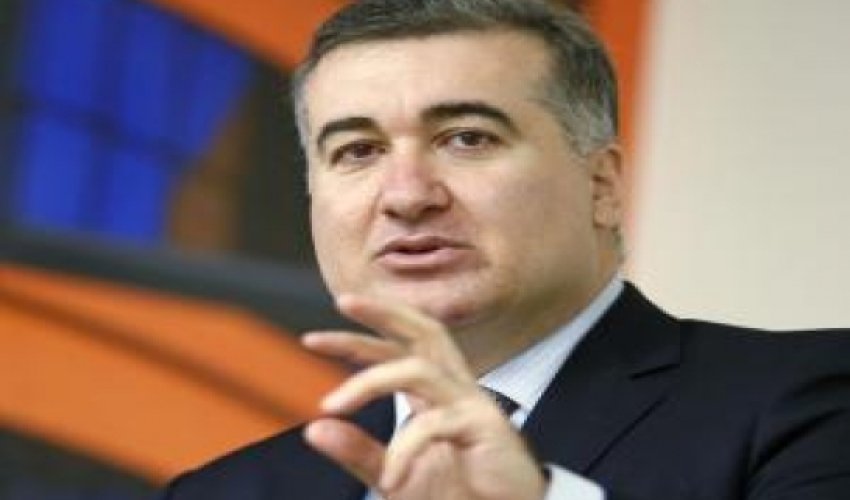
A San-Francisco-based branch of the World Affairs Council, a network of local councils that are dedicated to educating, inspiring and engaging Americans in international affairs has hosted a meeting dealing with Azerbaijan as part of the Diplomat Luncheon Series.
Azerbaijani Ambassador to the U.S. Elin Suleymanov, who was invited as a guest speaker, made a presentation on Azerbaijan and the changing regional dynamics in Eurasia, AzerTag news agency reported.
Suleymanov said there has always been ethnic and religious tolerance in Azerbaijan.
He informed the event participants of the geostrategic location of Azerbaijan and attributed international successes of Azerbaijan to not only its geographical location and natural resources but also the government's pragmatic and forward-looking policy.
Suleymanov said the policy was established by national leader Heydar Aliyev and successfully continued by President Ilham Aliyev.
He noted that the Final Investment Decision on the Shahdeniz-2 project was signed in Baku on December 17, describing the opening of the South Gas Corridor to Europe from Azerbaijan as an "important" step.
The project, worth $45 billion, will create over 30,000 new jobs in the countries the corridor will run through.
Suleymanov also provided an insight into other large infrastructure projects implemented with active engagement of Azerbaijan, in particular, the Baku-Tbilisi-Kars railway, which is set to significantly shorten distance between East and West.
He further said the country faced Armenian military aggression first years into its independence, noting Armenia continues to occupy Azerbaijani lands.
Armenia occupied nearly 20 percent of Azerbaijan's internationally recognized territory, including Nagorno-Karabakh and seven adjacent regions, after laying territorial claims against its South Caucasus neighbor that caused a lengthy war in the early 1990s. The UN Security Council adopted four resolutions on Armenia's withdrawal from the Azerbaijani territory, but they have not been enforced to this day.
Jeffrey Collins, the former U.S. diplomat, currently the Senior Counsel for International Policy at Chevron was a moderator at the event.
Collins said Azerbaijan was the first democratic republic in the Muslim Orient, and the country has a strategic geographical location between East and West.
He went on to say that Azerbaijan was the first Caspian nation that delivered its energy resources to the world markets, underlining it was important for the country's integration into the world energy markets.
He elaborated on the Azerbaijan's contributions to the international and regional peace and stability, and its participation in the peacekeeping operations in Afghanistan and other regions.
Touching upon the Nagorno-Karabakh conflict, Collins said the dispute claimed tens of thousands of lives, and expressed hope that the conflicting sides would achieve peace shortly.
The Global Affairs Council, founded in Northern California in 1947, is one of the leading research centers. The organization is based in San Francisco.
While in San Francisco, Suleymanov met with leaders and members of the American Jewish Committee's office in San Francisco, one of the leading organizations of the U.S. Jewish community. Director Mervyn Danker said the Jewish community is enjoying the atmosphere of tolerance existing in Azerbaijan. He thanked the people and the President of Azerbaijan for the conditions created for the local Jewish community in the country.
Suleymanov also met with the activists of the Azerbaijani community. They discussed outstanding tasks facing the Azerbaijani Diaspora.
Suleymanov also visited renowned professor Lutfi Zade who is living in California. During the meeting, Lutfi Zadeh pointed out that the policy pursued by President Aliyev would bring Azerbaijan to greater successes.
(Azernews)
ANN.Az

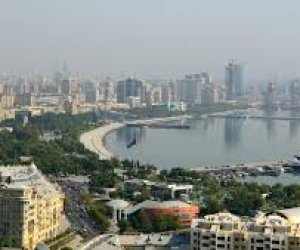
























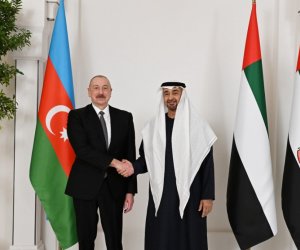
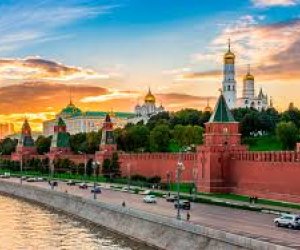

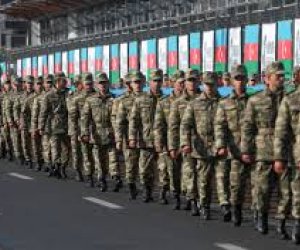
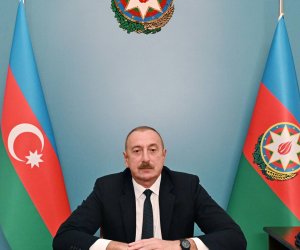





 Photo
Photo 



 Video
Video 

